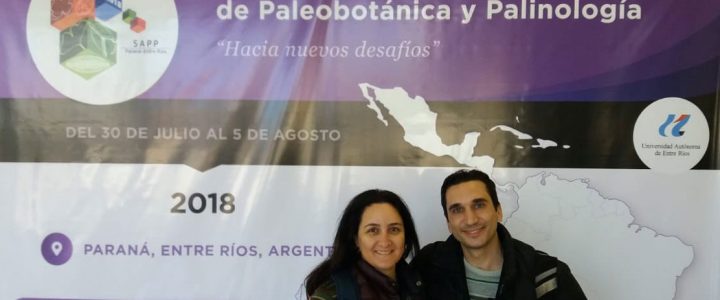From July 30th to August 5th, 2018, the 17th edition of SAPP was held in Argentina. RCPol held two activities in this edition, a plenary lecture and a training course.
On Wednesday, August 1st, Dr. Cláudia Inês da Silva, coordinator of RCPol, held a plenary lecture titled “Palinoecology and bee conservation”. In this plenary the importance of Palynology for bee-plant interaction studies was discussed. Through the identification of the pollen grains collected from the bees’ bodies and nests it is possible to identify the most important plant species in the bees’ diets. She also pointed out how important it has been to build a reference collection and the computational tools that are available on the RCPol website, which help in the task of identifying the pollen grains used by bees.
In addition to the plenary, RCPol offered in a condensed form its Training Course, on August 4th and 5th, discussing with the following topics:
- Methods of organizing data for insertion into RCPol
- What types of data are required for insertion into RCPol
- Organization of data in spreadsheets
- Exercises on data organization
- System features of interactive keys for species identification
- Data Quality
- How to become a RCPol collaborator
The SAPP is an event that brings together researchers from palynology and paleopalinology, who are already familiar with the methods of collecting and processing pollen material. The course focused on how to organize and store pollen descriptions data, data quality and features that were created by RCPol. Participating in the course were Brazilian, Argentine and Colombian researchers. Through this course it was possible for our network to expand a little more.












You must be logged in to post a comment.